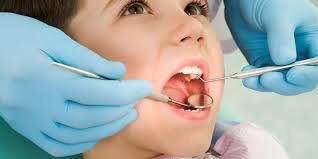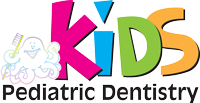
15 Feb How Good Oral Health Routines Prevent the Spread of Cavities?
Cavities form when bacteria feeds on the sugar left behind on your teeth by the food you eat. As they consume these sugars, they make an acid that dissolves your enamel, eventually making the holes known as cavities. Did you know that cavities are contagious? Just like the bacteria that cause infections like strep throat, the bacteria that cause cavities can spread from person to person as well.
Babies and children are more susceptible to catching cavity-causing bacteria, especially when members of the household have poor dental and general hygiene practices. As we get older, the risk of catching Streptococcus mutans and sobrinus, the bacteria that cause tooth decay, reduces but does not vanish.
While the most common “cause” of cavities is sugar, the bacteria that feed on sugar and create cavities are transmissible. Poor oral hygiene allows this bacteria to grow to a level that is contagious.
You may be wondering how cavity-causing bacteria spread. Much like a cold, they can spread from sneezing, kissing, sharing utensils, drinks, food, and more. You can prevent the spread of cavities in the same way you prevent the spread of a cold- by keeping these risk factors to a minimum in your home. Learn more about how cavities spread within families by reading the research study conducted by the University of Louisville
The spread of cavities from person to person shrinks greatly when all members of the household are diligent in brushing their teeth regularly. Regular brushing means brushing twice a day for two minutes, and regular flossing means flossing every day. Good oral hygiene prevents your own cavities, and it also prevents you from spreading cavity-causing bacteria to the young children in your home.
If your child is under the age of seven or eight, you need to brush their teeth for them, as their manual dexterity has not yet developed enough to effectively brush. If you have a baby, there are steps you can take to prevent tooth decay, even before their teeth come in. For babies 12 months and younger, gently wipe their gums with a washcloth after breakfast and before bed. Once teeth start coming in, lightly brush with a soft baby toothbrush and a tiny amount of fluoride toothpaste. We recommend checking out the CDC link below for more information about preventing childhood cavities https://www.cdc.gov/oralhealth/basics/childrens-oral-health/index.html
Avoid sending your youngster to bed with food or a bottle. Give your child water between meals. Read our blog about the best and worst drinks for dental health for more information. If you have any questions about cavities, or are searching for a pediatric dentist in the Allen, TX area, please call 972-727-0011 to make an appointment with Dr. Lisi or Dr. Alina at Kids Pediatric Dentistry
